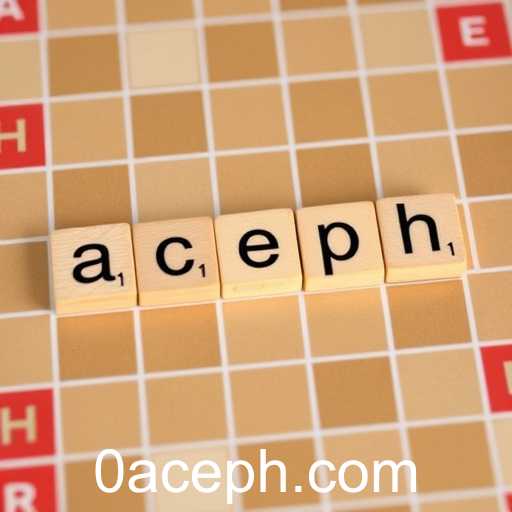Explore the fascinating world of Scrabble Helpers, focusing on the keyword 'aceph,' and discover how these digital tools enhance gameplay while expanding vocabulary.
In the world of word games, players are constantly seeking tools and strategies to enhance their skills and improve their gameplay. One such popular tool is the 'Scrabble Helper,' a category of game aid that assists players in maximizing their scores by finding optimal word combinations. On a particular website, this digital assistant has garnered attention for its keyword 'aceph,' which seems like a puzzle waiting to be solved.
Scrabble, a beloved classic word game, challenges players' creativity, vocabulary, and strategic thinking. With the introduction of digital tools like the Scrabble Helper, enthusiasts now have a digital ally to aid them in their quest for victory. These helpers typically work by allowing players to input their current letters, including the tough ones, and then suggesting possible word combinations that can be formed, verified against a dictionary. This is where the keyword 'aceph' comes into play.
'Aceph' may initially seem like a string of random characters, but for those immersed in Scrabble, it could be the key to unlocking high-scoring opportunities. Derived from the Greek 'kephale' meaning 'head,' the prefix 'aceph' often shows up in words like 'acephalous,' which describes something without a head or leader. For instance, if a player possesses the letters A, C, E, P, H, along with perhaps, a blank tile acting as a wildcard, the possible high-scoring outcome could be 'aphace,' cleverly constructed using the helper's suggestions.
The charm of using a Scrabble Helper doesn't solely lie in simply winning; it’s about learning new words and expanding one’s vocabulary. Each suggestion provides a rich learning opportunity, allowing players to familiarize themselves with new words and definitions, which ultimately enriches their language skill set. Additionally, for competitive players, employing such tools means that they can better compete in tournaments where having a rich vocabulary is not just advantageous, but essential.
Yet, reliance on digital help during casual play brings forth a debate regarding fairness and the spirit of the game. Critics argue that Scrabble Helpers could disadvantage those who prefer traditional gameplay, where all knowledge must come from memory rather than digital sugges tions. However, proponents advocate for their usage as long as all players unanimously agree to it beforehand, ensuring a level playing field.
In conclusion, the 'Scrabble Helper' with its intriguing 'aceph' keyword illustrates the intersection of classic gameplay and modern technology, offering enhanced experiences for word enthusiasts. It serves as an excellent resource for expanding one’s linguistic prowess while retaining the essence of friendly competition. Whether used for casual fun or serious contests, these digital assistants remind us of the powerful role technology plays in enriching our gaming landscapes.




